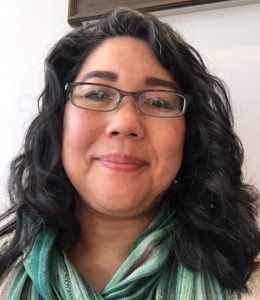By Carol Harada
I am fourth generation Japanese-American, proud of it. Some of my great grandparents fled famine in southwestern Japan in the late 1800’s and one grandmother came over by herself on a steamer in 1920. She was fifteen. All migrated to Hawaii – first a sovereign kingdom, then a US Territory, and in 1959 the 50th state of the Union.
My story is like yours. The first ones were educated up to 8th grade and worked menial jobs – in the sugar cane and pineapple fields, as a maid, a taxi driver. Later they became merchants and self-taught builders. Church community and ethnic community anchored them. The next generation went to school, even to university, served in the military. Language was lost, customs too, so that they could be good Americans, not bad Japanese. My parents could understand the parent who only spoke Japanese, but could not respond in the ancestral tongue. Later, when I learned Japanese in college, they laughed when they heard the familiar rhythms, but still could not answer back.
Mom and Dad moved to the mainland with time owed to the US Army, landing in Jim Crow Arkansas in the mid 1950’s. My mother chatted with a black woman who suddenly grew quiet and nervous as their bus arrived. Mom followed her towards the back, but probably stopped short of the colored section. The woman one row behind froze her out, but Mom still tried to talk to her. The woman was terrified that she’d get in trouble. Mom, from a place where being fair or dark didn’t matter so much, didn’t understand what was going on and fell silent too. It was a lonely ride.
My parents lived in North Philly when Dad took his GI Bill to go to Temple University med school. Landlords asked if they were Hungarian, having never met Japanese Americans. When told they came from Hawaii, people assumed they were Polynesian and did the hula. Dad had classmates from all over, white, black, Jewish. A different rainbow, still diverse.
But then when they were pregnant with their third child, me, they moved an hour and a half north. That’s where I was born and lived my first 17 years. Our family was an island, with no Japanese community around us. Each of us grew up as islands too. A family without a larger community can barely pass on culture.
I was a kid with a lot of questions. I still have a lot of questions. Why is skin color, hair, facial features, mode of dress anything other than interesting? Why do people fear, dislike, or even hate other people without knowing anything about them? What is threatening about a different skin tone? A language with unfamiliar rhythms and sounds? And why were people afraid of me?
I wonder about Steve Malosky. I realize now he must have gotten his hatred of ‘dirty Japs’ from a grandpa traumatized by war in the Pacific. No one comes in hating like that. Google tells me that he’s now a cardiologist. I wonder if he went into medicine to heal others, to heal himself. My dad did exactly that and spent his life investigating the cause of illness, what went wrong. It’s also why he studied World War II history so deeply, to try to understand the pathology. I wonder if Steve Malosky and I are both looking into the mysteries of the heart, just from different angles.

Kuni Takashima, author’s grandmother
Did you miss Part 1? It’s here.
About the writer

Carol Harada is dedicated to fostering creativity and healing, and the shared territory of spiritual practice. She’s grateful to live in San Francisco and write in the company of Laguna Writers. For more, see deepriverhealing.com and carolharadacreates.com
If you would like to respond to Carol’s piece, please send it to I.am@writingtheresistance.com, and make sure to put Carol’s name in the subject line.

